The EV has a history dating back to the 1800s century when Thomas Davenport and Robert Anderson built some earliest of the EV models. In the early 1900s, the popularity of EVs rise, until the emergence of cheap gasoline-powered vehicles. In the 1900s the rising price of oil dramatically shifts popularity again towards EVs.
Fast forward to modern days, it is gaining popularity among various countries. Bangladesh is one of the accepting countries that widely opens its arms to EVs. The policymakers are pushing this concept for the masses. So, relevant questions that arise to the buyers and fans of EVs are ‘Are electric cars cheaper to maintain in Bangladesh?’
Yes. They are cheaper to maintain. As they have fewer moving parts compared to gasoline cars. That presents a lower risk of mechanical breakdowns, eliminating the need for frequent oil changes, which significantly reduces maintenance costs.
Moreover, the cost of powering an EV with electricity is generally lower than fueling a traditional gasoline car in Bangladesh. So it leads to substantial savings on fuel expenses.
A leading manufacturer Crackplatoon CSL EV charging has a variety of EV charging stations in Bangladesh. Provide a wide range of options for EV users here, Want to know more about the factors and subtleties of the topic? Continue to read, we will explore together all the related matters to this concern.
The Component of EV Maintenance
A shift towards more sustainable transportation is represented by Electric Vehicles (EVs), which offer unique maintenance components compared to traditional vehicles. For current and prospective EV owners, knowing these components is crucial. Let’s explore the key elements of EV maintenance.
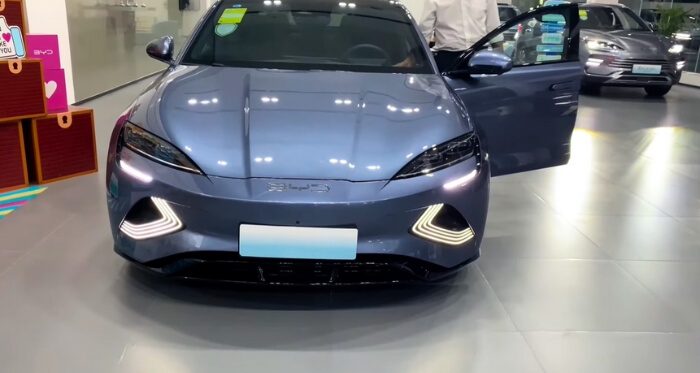
Battery Care
Battery is in the heart of an EV, necessitating regular monitoring to ensure longevity. Unlike gasoline engines, EV batteries require specific temperature and charge level management. Proactive care helps maintain battery health, which is essential for vehicle performance.
Brake System
The braking system of EV is regenerative and minimizes effects on braking disks and pads. This system recovers energy during braking, reducing the need for frequent replacements. Regular inspections ensure the braking system’s optimal functionality and safety.
Cooling System
EVs use a cooling system to prevent battery overheating, crucial for vehicle efficiency. Regular checks of this system ensure the battery operates within safe temperature ranges. Proper maintenance of the cooling system is vital for prolonged battery life.
Tire Maintenance
Due to their weight and torque, the tires in EVs experience different wear patterns. For tire longevity, it’s essential to do regular rotation and alignment checks. Proper maintenance ensures safe and efficient driving.
Software Updates
The essence of EVs is that they rely on software for various functionalities. Consequently, it requires regular software updates to enhance performance and introduce new features. It is key to the best driving experience and safety.
EV Charger Maintenance
The EV charger maintenance is as important as the vehicle itself. It requires regular checks by a qualified EV charger supplier to ensure safety and efficiency. Because proper maintenance guarantees consistent and reliable vehicle charging.
These are the core elements of an EV. For further knowledge of the maintenance cost of an EV and the cost of EV charging, it’s really important to know these basic components.
Are Electric Cars Cheaper to Maintain?
Yes, electric cars are cheaper to maintain. This innovative shift in the automotive industry brings a blend of efficiency and economic benefits. The lower maintenance requirements of electric vehicles (EVs) are a significant factor in their growing popularity.
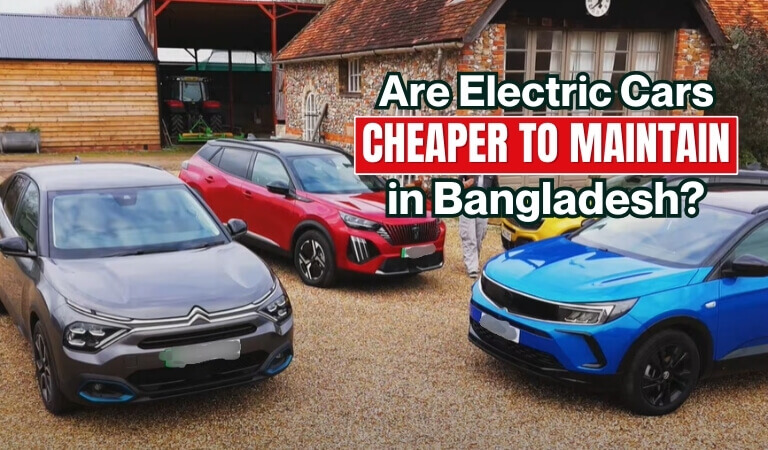
This growing popularity brings some important questions to the minds of buyers. One of the questions is “Are electric cars cheaper to maintain?”, which deals with the unique design and operation of EVs. Let’s dive into the factors that contribute to the cost-effectiveness of maintaining an electric car.
Fewer Moving Parts
EVs have fewer moving parts than gasoline cars. That leads to less wear and tear, resulting in fewer mechanical failures. So, the overall maintenance requirements and costs are notably lower.
Regenerative Braking System
They have a regenerative braking system that minimizes brake wear. Which recovers kinetic energy, reducing the need for frequent brake replacements. As a result, the maintenance cost for the braking system is substantially reduced.
Battery Longevity
Their battery is designed for durability and long life. Although replacement can be costly, the longevity of these batteries offsets the expense. Also, proper maintenance ensures optimal battery performance over many years.
Reduced Fluid Needs
As they are powered by Electricity, the need for oil changes is not there. Eventually requiring fewer fluids, like engine oil and transmission fluid, than traditional cars. Which significantly cuts down on regular maintenance costs.
Energy Costs
The cost of electricity for charging an EV is generally lower than gasoline expenses. On average, EV charging can cost about half as much per mile compared to gasoline. This difference results in significant savings in fuel costs.
Governmental Incentives
Many governments offer incentives for owning EVs, including maintenance cost reductions. These incentives can include tax credits, rebates, and other financial benefits. Such initiatives make EV maintenance more affordable compared to gasoline vehicles.
The combination of these factors contributes to a lower total cost of ownership for electric vehicles, making them more economical to maintain compared to their gasoline counterparts.
The Maintaining Cost Comparison Between Electric Cars and Gasoline Cars
While transitioning from gasoline cars to electric vehicles (EVs), a sparked discussion is about the comparative maintenance costs. Which is vital for consumers weighing their options for having a reliable transformation.
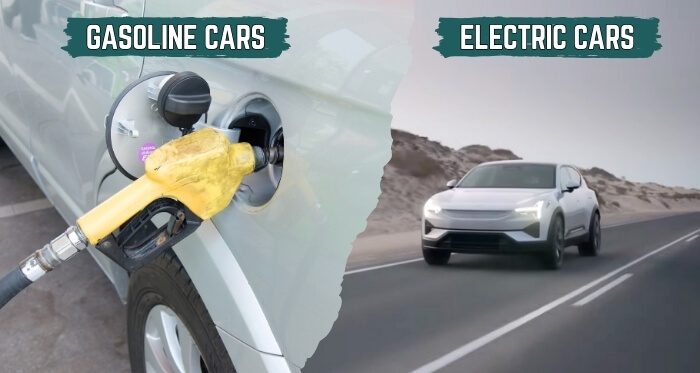
To know the distinctions, we will explore the specific maintenance costs of EVs versus gasoline cars, highlighting key differences. Here are these distinctive matters briefly explained.
Initial Setup Costs
An initial investment is required to set up an EV home charging. In Bangladesh, Crackplatoon Csl offers these home EV charging stations. The AMITI21 AC Type EV Charger from Crackplatoon is ideal for home EV charging setup.
The cost of an EV charging station varies but averages around $1,200. This one-time expense is unique to electric cars and is an addition to the vehicle’s price.
Engine Maintenance
Gasoline engines, with more moving parts, incur higher maintenance costs. The average annual maintenance cost for gasoline cars is about $1,200. EVs, with simpler electric motors, significantly reduce these costs, averaging around $600 per year.
Brake System
Regenerative braking in EVs reduces wear on brake pads and discs. This feature lowers the brake maintenance cost for EVs to around $300 over several years. In contrast, gasoline cars average $150 annually for brake maintenance.
Battery Replacement
EV battery replacement is a significant expense, potentially costing up to $6,000. However, this is a rare cost, as batteries often last over 8 years. Gasoline cars have frequent smaller expenses, like oil changes, totaling around $500 annually.
Fueling Costs
Electricity costs for EVs are substantially lower than gasoline. Annually, EVs cost about $500 in electricity, whereas gasoline cars average $1,200 in fuel. This makes EVs more economical over time, despite higher upfront costs.
The Common Repair Issues For EVs and their Costs
As with all electronic devices, the EV also requires repairing because they are not immune to these issues. It is crucial to learn common EV repairs and their associated costs for informed ownership. We’ll explore these issues, focusing on typical costs and how they affect EV maintenance.
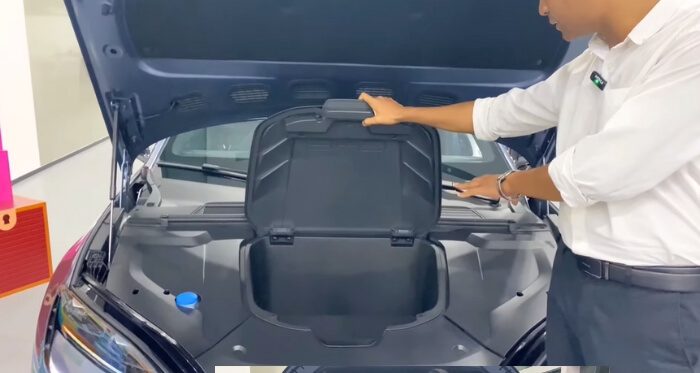
Battery Degradation
One of the most significant issues for EVs is battery degradation. It is costly to replace an EV battery, averaging around $5,000 to $7,000. However, most batteries are warranted for 8–10 years, mitigating this expense over time.
Electric Motor Issues
A less common issue is an electric motor fault, but this can be expensive to repair. Typically ranging from $1,000 to $3,000, depending on the severity. Proper maintenance can help prevent these issues, prolonging motor life.
Charging Port Problems
Issues with the charging port, including malfunctioning connectors, can disrupt EV charging. Repairing or replacing a charging port can cost between $500 and $1,000. Regular inspections, such as those offered by Crackplatoon EV Charging, can prevent these problems.
Cooling System Maintenance
They use sophisticated cooling systems to manage battery temperature. Repairing a malfunctioning cooling system can range from $600 to $1,200. Timely maintenance is key to avoiding costly repairs in this system.
Suspension Wear
Due to their weight, EVs can experience faster suspension wear. Replacing suspension components may cost between $300 and $800. Regular checks and balances can minimize these repair needs.
The Maintenance of Battery and the Relevant Costs
For longevity and better performance, it is crucial to maintain the EV battery. Proper care ensures efficiency and maximizes the vehicle’s lifespan. Here, we dive into the specifics of battery maintenance and the associated costs.
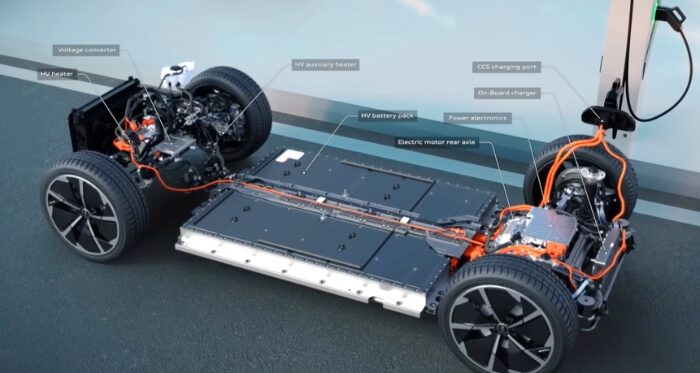
Regular Monitoring and Balancing
Regular monitoring and balancing the use of the battery is required to keep the battery in optimal condition. This ensures less damage and prolongs battery life. The average cost for this maintenance is around $100 annually.
Temperature Management
Batteries are sensitive to temperature extremes, so thermal management is vital. Installing a proper cooling system can cost between $500 and $1,000. For users in Bangladesh, regular checks by services like Crackplatoon Charging ensure the system functions effectively.
Battery Replacement
Eventually, battery capacity will diminish, urging a necessary replacement. A new EV battery can cost between $5,000 and $7,000. Fortunately, this is a long-term cost, which will be needed after 8–12 years.
These are the battery maintenance issues EV users should know. This will help them to make proper decisions while maintaining the EV.
Tips for Keeping Electric Car Maintenance Costs Low
As EVs are renowned for their low maintenance costs, there are ways to further minimize their expenses. Adopting specific strategies can ensure your electric vehicle (EV) remains cost-effective over its lifespan. Here are some tips for keeping electric car maintenance costs low.
- Regular Battery Checks: Consistently monitor your EV’s battery health to avoid costly replacements. Early detection of issues can save significant expenses in the long run.
- Optimal Charging Practices: Avoid overcharging and deep discharging, as they shorten battery life. Using timers for charging can prevent these issues and extend battery longevity.
- Gentle Driving Habits: Accelerate gently and use regenerative braking effectively. This reduces wear on both the battery and brake system.
- Timely Software Updates: Keep your EV’s software up to date. Regular updates can improve efficiency and prevent electronic malfunctions.
- Use of Recommended Tires: Fit your EV with tires recommended by the manufacturer. The right tires improve efficiency and reduce wear.
- Annual Professional Inspections: Have a qualified technician inspect your EV annually. This can identify potential issues before they become costly repairs.
- Cooling System Maintenance: Ensure the cooling system is functioning properly. It’s crucial for battery health and overall vehicle performance.
- Avoid Extreme Temperatures: Park in shaded or covered areas to protect from extreme heat or cold. This helps in maintaining battery efficiency and longevity.
These are the tips, by following these tips one can ensure minimizing the costs more effectively.
Final Thought
While exploring the landscape of electric vehicle maintenance, reveals to us a compelling narrative. At the heart of this discussion lies the critical question: “Are electric cars cheaper to maintain?” That resonates with a clear affirmative, emphasizing the reduced mechanical complexity, lower frequency of repairs, and the cost-effectiveness of owning an EV.
Key factors such as the longevity of CrackPlatoon’s EV batteries, the efficiency of regenerative braking systems, minimal fluid changes, and the economical nature of electric charging contribute to this cost advantage.
However, potential EV owners must understand these aspects thoroughly to make informed decisions. Accurate knowledge and awareness of these points can prevent costly misunderstandings and ensure a smooth, economical transition to electric vehicle ownership, aligning with the modern shift towards sustainable and efficient transportation.
